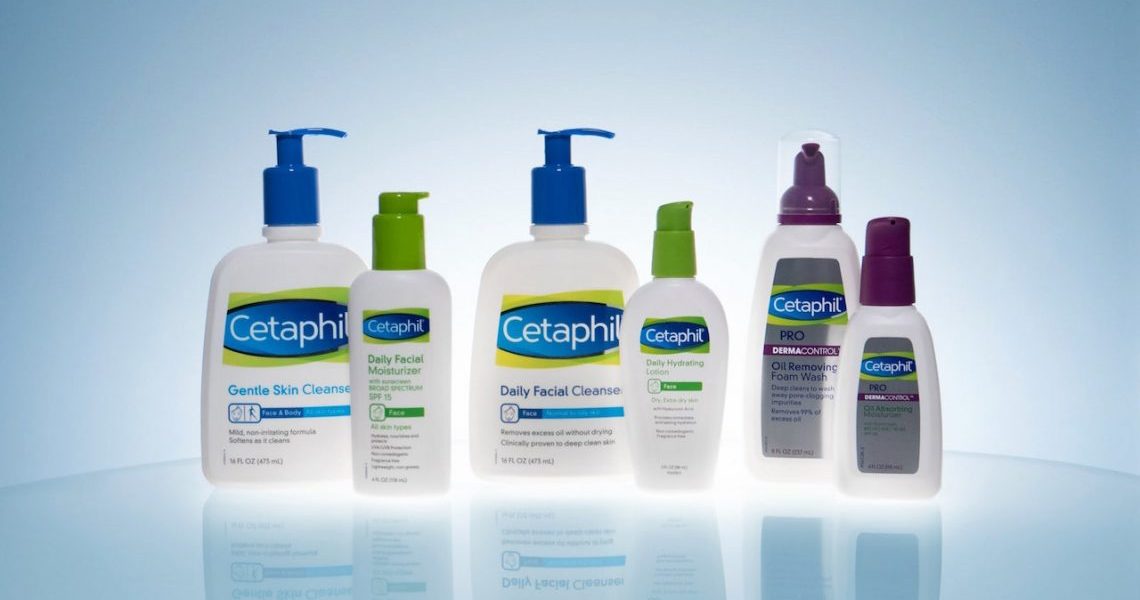Mass skin-care brand Cetaphil is out to prove that, even without a luxury price tag, skin care can still be science-led.
Through consumer research, Cetaphil found that 70% of Americans self-diagnose as having sensitive skin, which includes symptoms like dryness, irritation, roughness and tightness. Timed to its own first-ever Sensitive Skin Awareness Week from March 22-March 28, Cetaphil is launching a week-long campaign related to the issue. Cetaphil and simple skin-care brand CeraVe have gained a renewed popularity on social media due to their mass appeal and accessible price points (Cetaphil products are less than $17), and the rise of “DermTok.”
“We wanted to launch this Sensitive Skin Week, which is fundamentally linked to science, education and dermatologists, to educate people,” said June Lee Risser, vp and gm at U.S. Galderma Consumer Care. “Part of the reason why [Cetaphil has outpaced market growth] is because customers are [seeking] trustworthy, simple and derm-recommended brands. It also helps that we are accessible through Amazon.com, Walmart, grocery aisles and CVS.”
The continued Cetaphil alignment with dermatologists is attractive to Cetaphil, which positions itself as appropriate for young people who are just starting to use skin care and looking for professional guidance. Cetaphil’s digital marketing takes place across Facebook, TikTok and Instagram, and includes Live chats and account takeovers. It also partners with a mix of dermatologists and influencers like Edward Zo and Melissa Alatorre, who are popular across both TikTok and Instagram.
The particular efforts to reach Gen Z are paying off. According to the Piper Sandler annual teenage consumer survey from fall 2020, Cetaphil ranks as the No. 3 most popular skin-care brand behind CeraVe and Neutrogena. It moved up from the No. 4 position in 2019. Risser declined to state Cetaphil sales or marketing investments. Galderma, which owns Cetaphil, was formerly a subsidiary of L’Oréal and then of Nestlé, but has been held by a consortium of private institutional investors since 2019.
According to WGSN trend forecasting data, Gen Z makes up 40% of consumers as of 2020. Clare Varga, head of beauty at WGSN, said this generation will define beauty for the next decade, as a result.
“Gen Z are very much ‘skintellectuals,’ and this has been reflected in the slowing of cosmetic sales and the increase of skin care. [The] ultimate goal of Gen Z is to have skin that’s so healthy and luminous, there’s little or no need for makeup,” said Varga. “Gen X, along with millennials, are the most frequent users of all skin-care products. They want reliable, results-driven [products] and are willing to pay for them. Gen Z want the same quality but at more accessible prices.”
Ad position: web_incontent_pos1
Since 2015, Cetaphil has invested in B2C digital marketing to consumers through videos, as well as both above- and below-the-line marketing. In the fourth quarter of 2020, Cetaphil launched its first TikTok influencer program, tapping 23 people to spotlight its cleansers. Risser said that Cetaphil found success on TikTok by partnering that influencer program with a paid media boost from TikTok to drive awareness.
“We’re very dedicated to setting a KPI, measuring it and then understanding it,” said Risser. “We ran studies on our TikTok campaign from last year, and [it] showed that the paid media boost and the campaign led to an increase in purchase intent and brand favorability.”




